This Earth Month, we invite you to “Do One Thing” for the planet. Together, we can make a difference.
As a nationally recognized leader in providing hands-on environmental conservation programs for youth and young adults, we want to inspire those in the communities we serve to take (at least one) action in support of our shared environment.
Get inspired and take note of some of these ideas below.
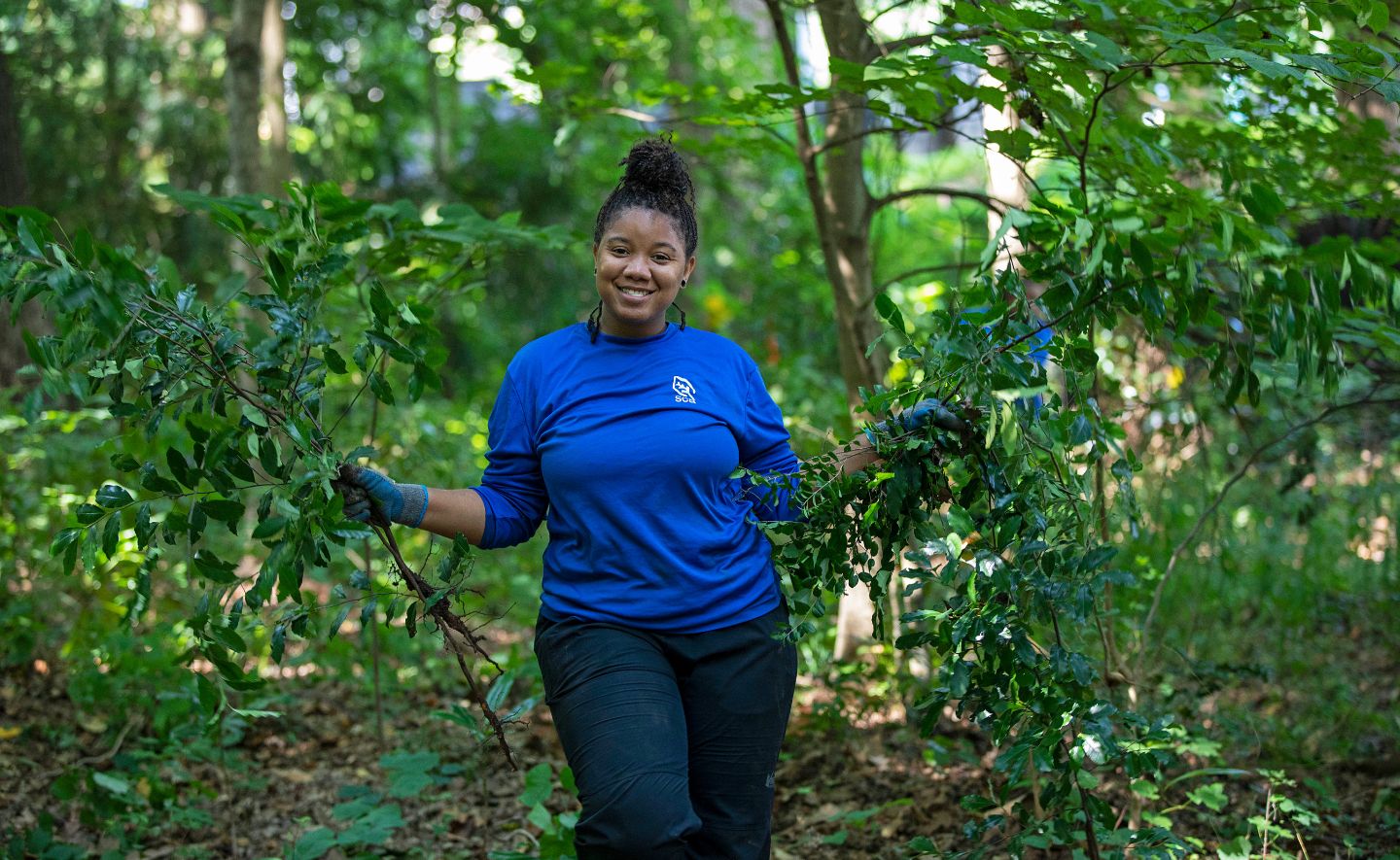
If you’re between the ages of 14-26 (or up to 30 if you’re a veteran), the SCA has opportunities all across the country to apply your passion for the planet to hands-on conservation projects.
For those in a different phase of life, share your passion and talk about the SCA with your kids, friends, neighbors, niblings, godchildren, mentees, camping buddies, book club… or anyone else you know who’s looking for an opportunity to get their hands dirty and build skills for the green economy.
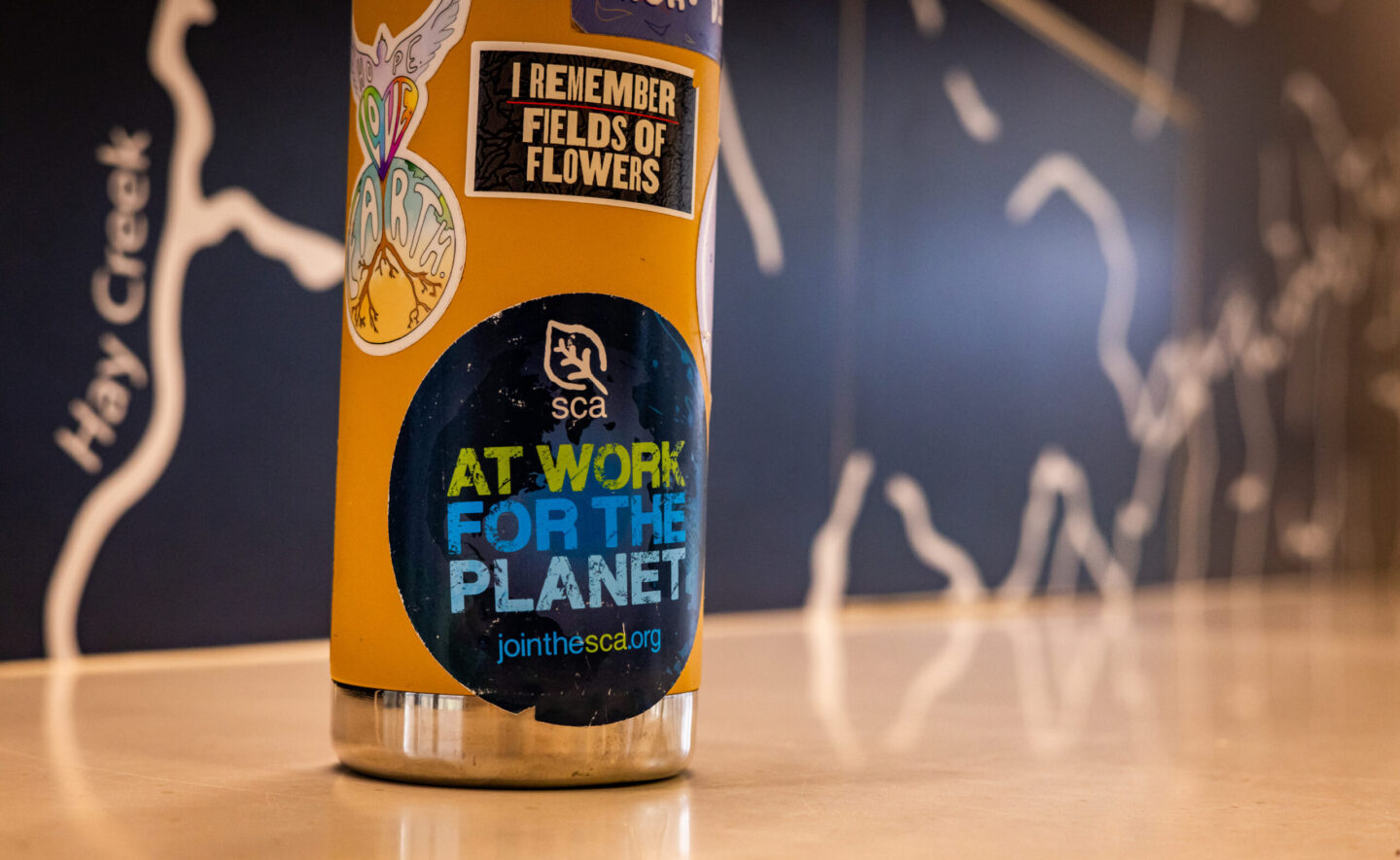
Up your reduce – reuse – recycle game. (Photo Credit: Ashley Smith, Wide Eyed Studios)
Craving a spring wardrobe refresh? Start a clothing swap. Trying to cut back on Amazon deliveries? Join your local Buy Nothing group. Looking to cultivate a grown-up home with furniture that actually goes together? Get on YouTube and learn how to refurbish thrift finds.
Cutting out single-use plastic is a great start, but eliminating fast fashion and keeping still-useable goods in circulation can take your reduce-reuse-recycling efforts to the next level.
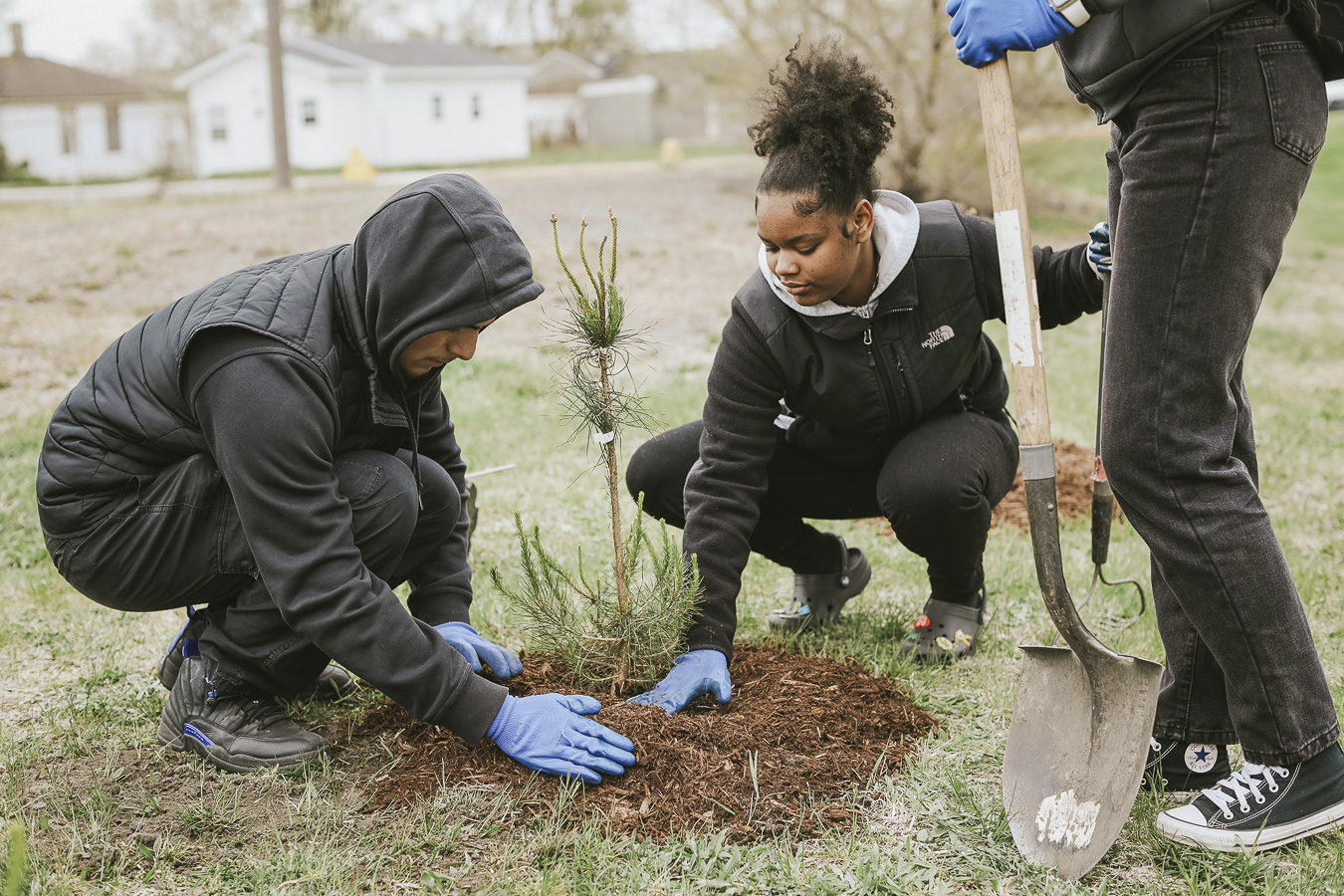
Trees provide more benefits to urban communities than can possibly be named in a photo caption. (Photo Credit: Student Conservation Association)
Find out what Earth Day or Arbor Day celebrations are happening near you, and commit an afternoon to planting trees! If you’re located in greater Chicago or Washington, DC, you could even join in on SCA-led tree-planting events.
Forests in the United States remove nearly 800 million tons of climate-warming carbon dioxide from the atmosphere every year, including close to 45 million tons directly from urban forests. Cities thrive when trees are part of the story.
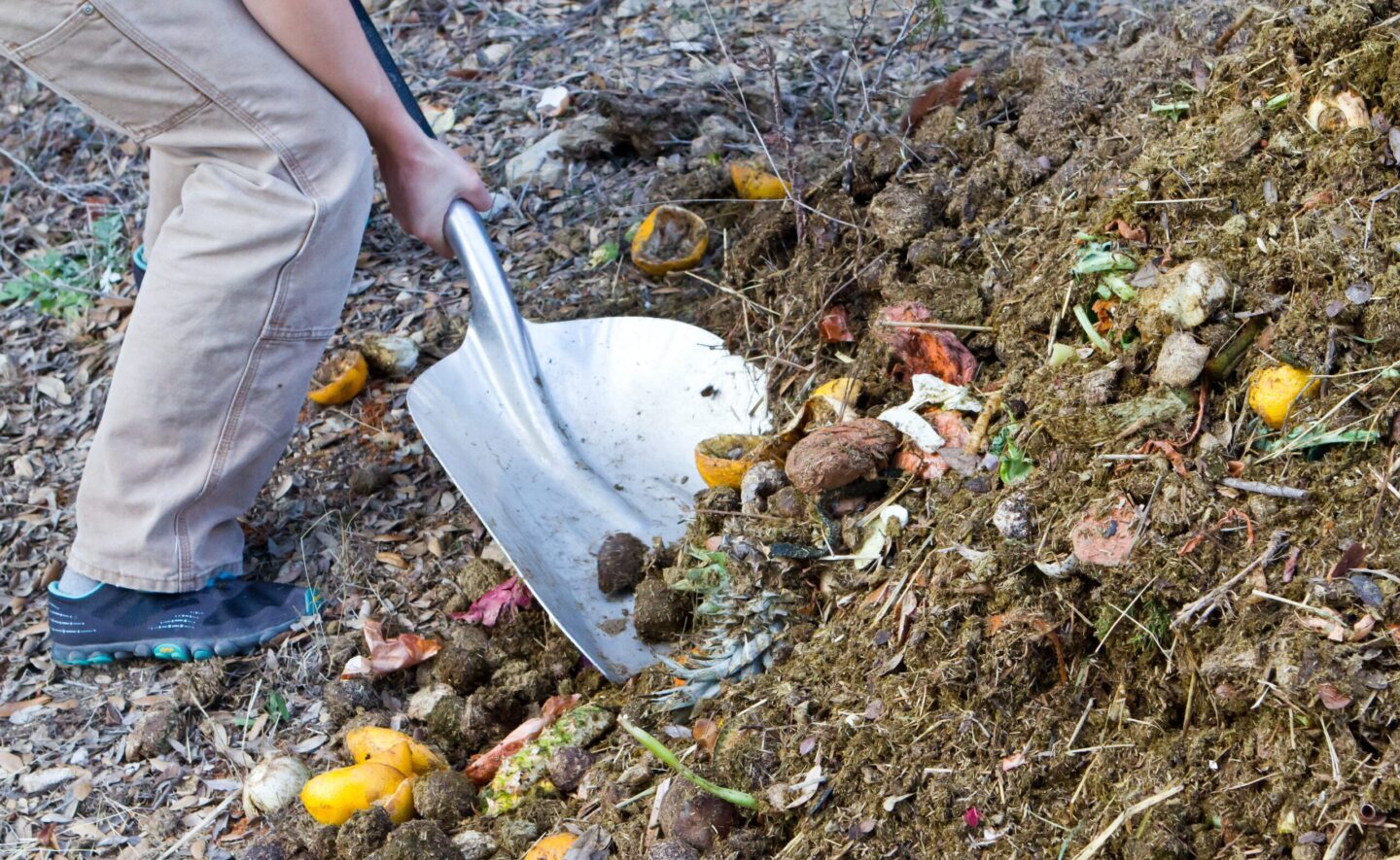
Composting gives food waste the chance to break down in oxygen-rich conditions, allowing microorganisms to decompose organic matter. (Photo Credit: Reinout Van Wagtendonk/ Dreamstime)
Participate in municipal composting programs where available, or if you have the space, invest in a backyard composting system that will turn your organic food waste into nutrient-rich soil.
Food waste accounts for 15-18% of municipal solid waste entering U.S. landfills and contributes 20-25% of landfill methane emissions.
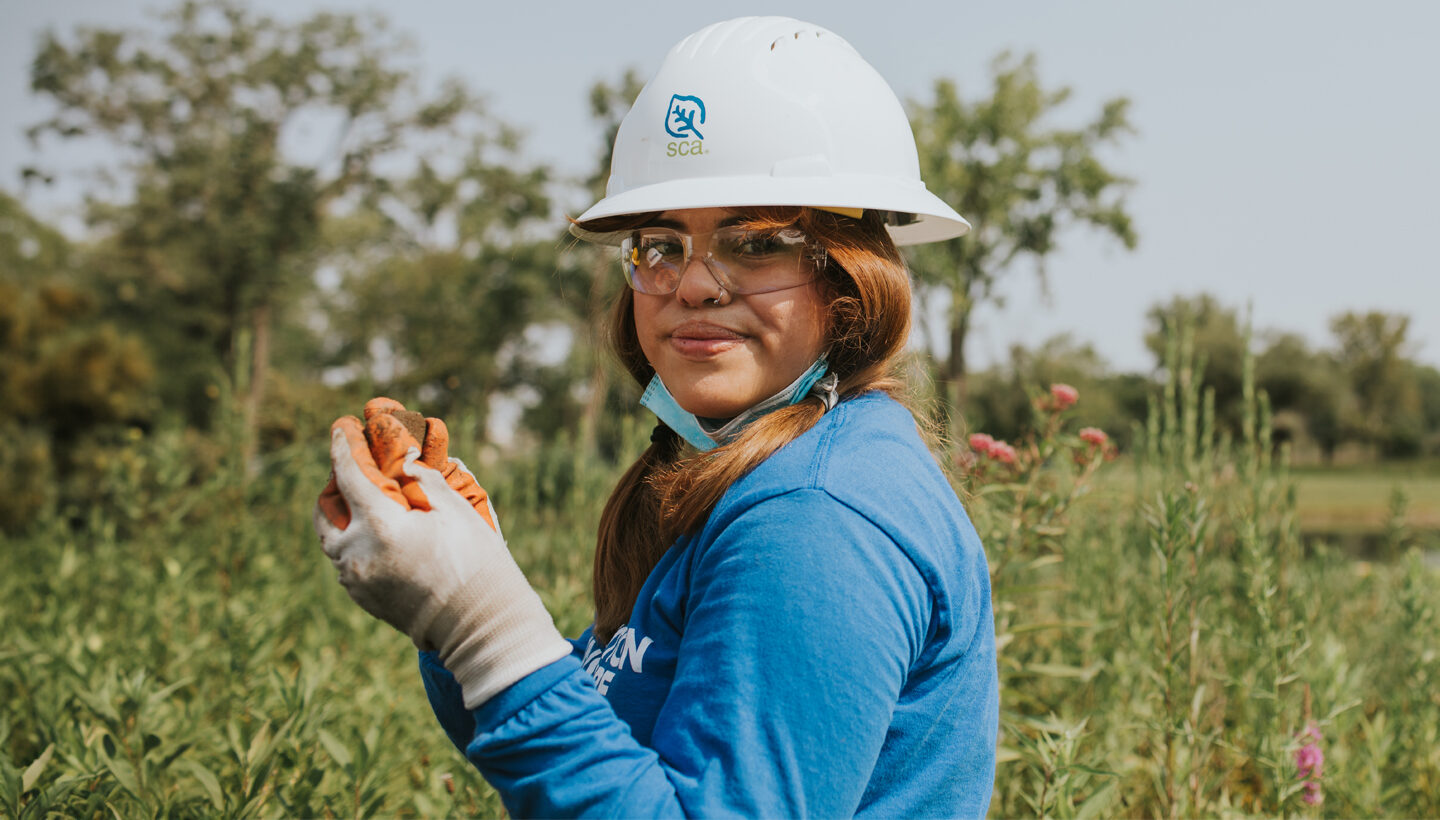
We need you now more than ever. Our planet can’t afford recent funding cuts. (Photo Credit: Student Conservation Association.)
You can Do One Thing right now. Make a gift to the SCA to support our vital work nurturing the next generation of conservation leaders.
Or, make every month Earth Month by becoming a Trail Builder and making a monthly gift to support youth all over the country who are ready to step up for the planet. We need you now more than ever.